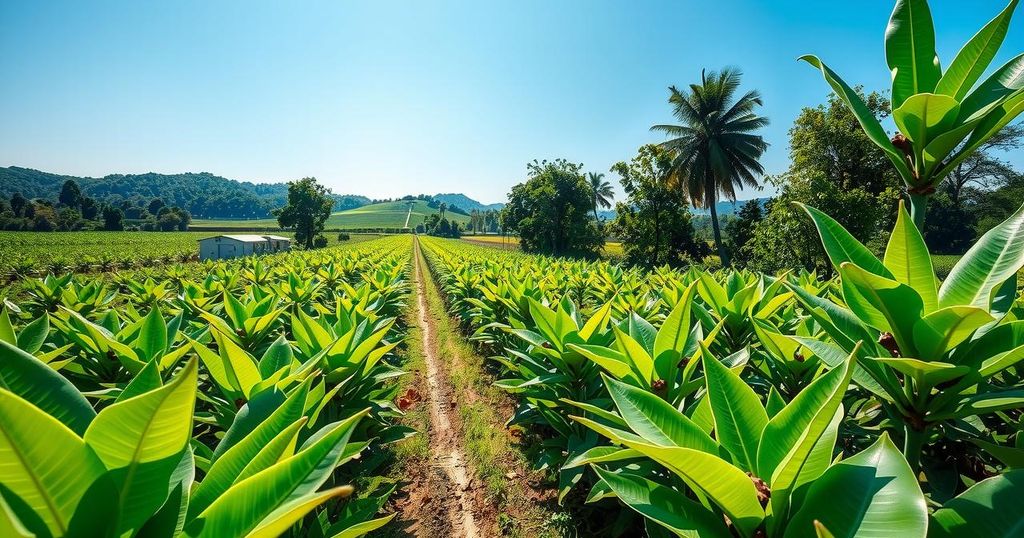Farmers in northeast Madagascar are struggling to adapt to significant climate changes impacting their agricultural practices. Despite their concerns about increasing temperature and irregular rainfall, only a small percentage have implemented adaptive strategies. Financial barriers and the need for supportive policies hinder broader adoption of alternative farming methods, placing farmers’ food security at risk amidst climate challenges.
A recent study highlights the challenges faced by farmers in northeast Madagascar, particularly in the regions of Sarahandrano and Mandena. These farmers have been experiencing significant changes in weather patterns, including rising temperatures and altered rainfall, which complicate their already difficult farming conditions. Despite recognizing the worsening circumstances, only a small fraction of farmers reports adapting their practices to these climate changes.
Most farmers in the area cultivate vanilla beans alongside other crops such as rice, bananas, and coffee on limited plots of land. They utilize traditional hand tools and rely on natural water sources for irrigation. However, many farmers have observed declining water availability and adverse weather impacts over recent years. Approximately 75% of survey participants noted that extreme weather events have either reduced their farming time or compromised their water sources.
The changing climate also produces secondary issues, such as increased pest populations, and a rise in diseases like malaria and diarrhea among the farming population. Nonetheless, only 20% of those interviewed reported taking corrective action, such as adjusting their planting schedules or using fertilizers. Such adaptability rates are significantly lower compared to findings in other countries with small-scale farmers.
Demographic factors affect farmers’ willingness to adapt; specifically, those with greater asset ownership, such as durable goods, are more likely to implement changes. Given that approximately 80% of Madagascar’s population lives below the poverty line, financial constraints hinder many farmers from adopting alternative practices. The costs associated with new farming methods often exceed what farmers can afford, necessitating supportive programs to aid their transition.
Potential strategies include integrating fruit trees into existing fields or utilizing fish farming within rice paddies. These approaches can enhance both food security and contribute to pest management efforts. Yet, farmers in Madagascar must also contend with the inherent risks posed by natural disasters such as cyclones, which can devastate their livelihoods and disrupt access to markets due to infrastructural damage following heavy rains.
This climate crisis is not confined to northeast Madagascar; regions like Andringitra are experiencing similar effects, with recorded increases in average temperatures and decreased rainfall over the past fifty years. These challenges underscore the vulnerability of small-scale farmers, who represent a significant proportion of global food production.
The researchers plan to broaden their investigation to include 34 additional villages to validate their initial findings across various environments and evaluate the impact of adaptive strategies. The implications of climate change necessitate increased flexibility and risk-taking among farmers, a precarious balance when farm success directly influences the well-being of their families.
The study emphasizes the urgent need for adaptation strategies among farmers in Madagascar who are grappling with the adverse effects of climate change. Despite recognizing their challenges, the lack of significant adaptive measures highlights a critical need for financial support and resources. As global warming remains a pressing issue, the vulnerability of small-scale farmers, who play a vital role in food security, calls for immediate actions and broader research to identify effective adaptations.
Original Source: today.duke.edu




